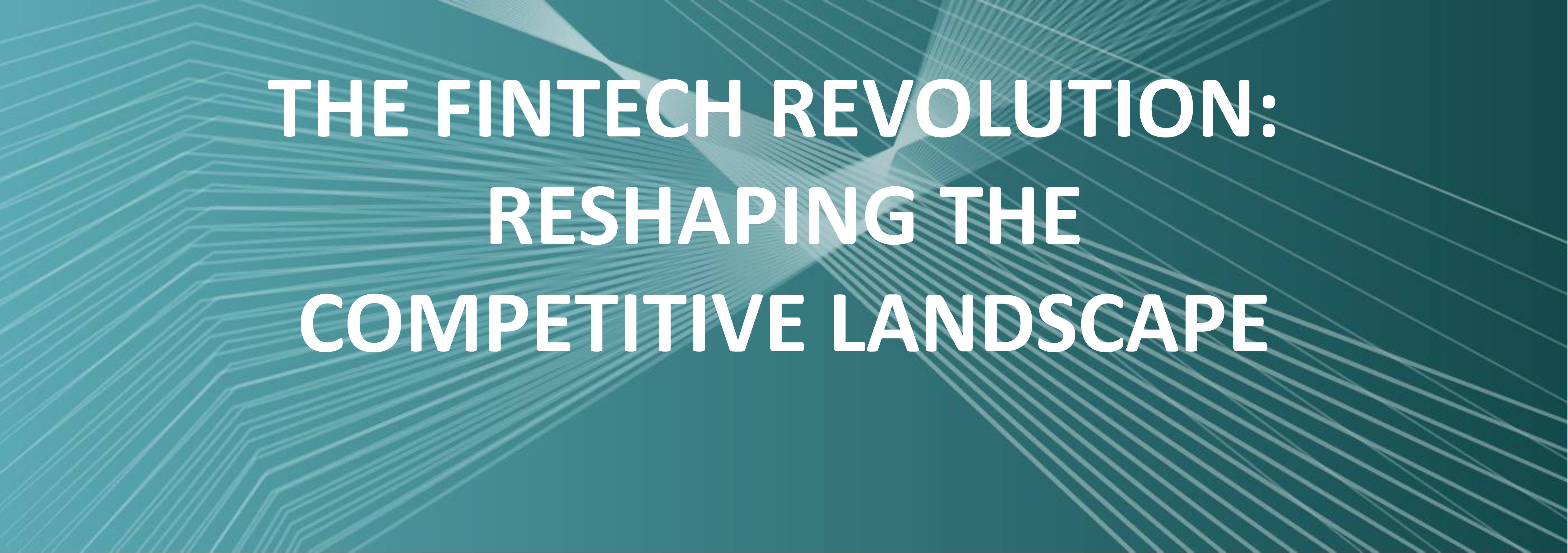THE FINTECH REVOLUTION: RESHAPING THE COMPETITIVE LANDSCAPE
Rapid advances in technology and connectivity combined with the near ubiquity of mobile devices are transforming the way financial services are delivered and accessed. Innovations in Fintech are leading to the redesign of several financial products and services, while modifying the competitive landscape in numerous economic sectors.
Mobile payment technologies and trade processing
Electronic wallet services work on smart phones and enable users to store, send and receive money using the mobile phone. While those services fill a void for the 2 billion people around the developing world who do not have access to traditional banking services, the nil or reduced transaction costs compared to more traditional payment solutions benefit both suppliers and customers. Furthermore, the streamlined method of payment boosts transaction experience and speeds up purchases. Sales on online channels are enhanced by the ability to receive immediate payments from remote customers. In addition, advanced payments and bookings enable the synchronization of supply and demand, benefiting business sectors where the final production and consumption are almost simultaneous (such as in many services industries and in the restaurant trade), facilitating delivery of constant quality services, reducing wastage and lowering costs. Besides, the increased ability to collect and analyse data allow businesses to engage with customers and offer targeted rewards and various discounts.
Currency exchanges and international money transfers
Fintech platforms boost connectivity between the platforms and a multitude of users, accelerating the ability to perform currency swaps at favorable rates, avoiding bank fees. The absence of a need for a physical infrastructure further allows for a reduction in the cost of cross-border remittances. The simplified processes and the ability to perform money transfers round the clock both save users’ time and lead to low turnaround times.
Countering fraudulent transactions
Security is a major issue for all forms of payments. Cash payments involve cash handling costs and associated security risks, including the risks of receiving counterfeit currency. While the cost of credit card fraud is usually borne by the payment system provider, a large part of the cost is passed on to the merchant in the form of fees. Fintech strengthens protection from fraudulent transactions through the use of bio metric authorizations such as facial and fingerprint recognition, voice authentication and retinal scanning. Furthermore, intelligent real-time monitoring systems, advanced analytics including topological analytics (looking for pattern inside big data) as well as geo-location data boost the ability to counter fraud.
Lending technologies
The rise of digital platforms improves access to multiple providers of finance and facilitates the comparability of financial products. In addition to a streamlined online experience, advanced algorithms may be used to analyse
and predict a borrower’s credit worthiness and thus provide a very swift decision turnaround time. Fintech enhances the ability of e-commerce retailers to lend to customers online to fund their purchases, and to receive subsequent repayments.
Equity crowdfunding
The availability of new technologies has considerably lowered barriers to entry in a number of economic sectors, leading to a rise in entrepreneurship and the need for additional sources of funding. Crowdfunding is an attractive source of early-stage capital in markets traditionally underserved by venture capital. Raising capital through a reputable platform reduces reputational risks as due diligence would normally be handled by the platform.
Tailored insurance solutions
Innovations in the way of capturing risk-related data (such as industrial and vehicle sensors) and the sophisticated ability to analyse data from various sources bring opportunities in tailoring insurance solutions to meet the exact needs of each business.
Financial investments and asset management
With pension plans increasingly shifting from defined-benefit to defined contribution schemes, an increasingly number of employees are being incentivised to acquire financial planning advice to revamp their retirement
planning strategies. Robo-advisors, by leveraging huge amounts of data, improve the ability of employees to manage their financial affairs and refine their retirement planning strategies at low cost. Investment portfolios may be rebalanced automatically as necessary based on the investors’ selected risk preferences.
Mauritius: An emerging Fintech hub
The applications of Fintech provide huge opportunities for businesses to reach remote overseas markets, streamline and accelerate transaction processing, boost customer engagement and experiences, offer tailored services, manage risks, and sustain competitive advantage. The development of an innovative Fintech ecosystem in Mauritius has now
become a priority for the Mauritius government as part of its goal of transforming Mauritius into a dynamic Fintech hub for the rest of Africa.
DTOS provides valuable insights and value-added services to businesses with regard to their evolving present and future needs. Should you have any query in relation to the topic covered and require any assistance, please do not hesitate to contact us. We shall be pleased to assist you.


